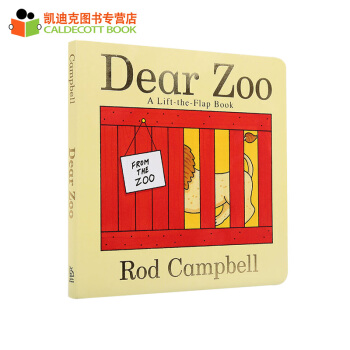![Little Women小婦人 英文原版 [平裝]](https://pic.tinynews.org/19017042/9ea721b9-6006-44d5-821c-6a944e615e62.jpg)

具体描述
內容簡介
Little Women is one of the best loved books of all time. Lovely Meg, talented Jo, frail Beth, spoiled Amy: these are hard lessons of poverty and of growing up in New England during the Civil War. Through their dreams, plays, pranks, letters, illnesses, and courtships, women of all ages have become a part of this remarkable family and have felt the deep sadness when Meg leaves the circle of sisters to be married at the end of Part I. Part II, chronicles Meg's joys and mishaps as a young wife and mother, Jo's struggle to become a writer, Beth's tragedy, and Amy's artistic pursuits and unexpected romance. Based on Louise May Alcott's childhood, this lively portrait of nineteenth-century family life possesses a lasting vitality that has endeared it to generations of readers.作者簡介
Louisa May Alcott, born in 1832, was the second child of Bronson Alcott of Concord, Massachusetts, a self-taught philosopher, school reformer, and utopian who was much too immersed in the world of ideas to ever succeed in supporting his family. That task fell to his wife and later to his enterprising daughter Louisa May. While her father lectured, wrote, and conversed with such famous friends as Emerson, Hawthorne, and Thoreau, Louisa taught school, worked as a seamstress and nurse, took in laundry, and even hired herself out as a domestic servant at age nineteen. The small sums she earned often kept the family from complete destitution, but it was through her writing that she finally brought them financial independence. "I will make a battering-ram of my head," she wrote in her journal, "and make a way through this rough-and-tumble world."An enthusiastic participant in amateur theatricals since age ten, she wrote her first melodrama at age fifteen and began publishing poems and sketches at twenty-one. Her brief service as a Civil War nurse resulted in Hospital Sketches (1863), but she earned more from the lurid thrillers she began writing in 1861 under the pseudonym of A.M. Barnard. These tales, with titles like "Pauline's Passion and Punishment," featured strong-willed and flamboyant heroines but were not identified as Alcott's work until the 1940s.
Fame and success came unexpectedly in 1868. When a publisher suggested she write a "girl's book," she drew on her memories of her childhood and wrote Little Women, depicting herself as Jo March, while her sisters Anna, Abby May, and Elizabeth became Meg, Amy, and Beth. She re-created the high spirits of the Alcott girls and took many incidents from life but made the March family financially comfortable as the Alcotts never had been. Little Women, to its author's surprise, struck a cord an America's largely female reading public and became a huge success. Louisa was prevailed upon to continue the story, which she did in Little Men (1871) and Jo's Boys (1886.) In 1873 she published Work: A Story of Experience, an autobiography in fictional disguise with an all too appropriate title.
Now a famous writer, she continued to turn out novels and stories and to work for the women's suffrage and temperance movements, as her father had worked for the abolitionists. Bronson Alcott and Louisa May Alcott both died in Boston in the same month, March of 1888.
內頁插圖
精彩書摘
Playing Pilgrims"Christmas won't be Christmas without any presents,"grumbled Jo, lying on the rug.
"It's so dreadful to be poor!"sighed Meg, looking down at her old dress.
"I don't think it's fair for some girls to have lots of pretty things, and other girls nothing at all," added little Amy, with an injured sniff.
"We've got father and mother, and each other, anyhow,"said Beth, contentedly, from her corner.
The four young faces on which the firelight shone brightened at the cheerful words, but darkened again as Jo said sadly?
"We haven't got father, and shall not have him for a long time." She didn't say "perhaps never,"but each silently added it, thinking of father far away, where the fighting was.
Nobody spoke for a minute; then Meg said in an altered tone, "You know the reason mother proposed not having any presents this Christmas, was because it's going to be a hard winter for every one; and she thinks we ought not to spend money for pleasure, when our men are suffering so in the army. We can't do much, but we can make our little sacrifices, and ought to do it gladly. But I am afraid I don't;"and Megshook her head, as she thought regretfully of all the pretty things she wanted.
"But I don't think the little we should spend would do any good. We've each got a dollar, and the army wouldn't be much helped by our giving that. I agree not to expect anything from mother or you, but I do want to buy Undine and Sintram for myself; I've wanted it so long,'said Jo, who was a bookworm.
"I planned to spend mine in new music,"said Beth, with a little sigh, which no one heard but the hearth-brush and kettle-holder.
"I shall get a nice box of Faber's drawing pencils; I really need them," said Amy, decidedly.
"Mother didn't say anything about our money, and she won't wish us to give up everything. Let's each buy what we want, and have a little fun; I'm sure we grub hard enough to earn it,"cried Jo, examining the heels of her
boots in a gentlemanly manner.
"I know I do, teaching those dreadful children nearly all day, when I'm longing to enjoy myself at home," began Meg, in the complaining tone again.
"You don't have half such a hard time as I do," said Jo. "How would you like to be shut up for hours with a nervous, fussy old lady, who keeps you trotting, is never satisfied, and worries you till you''e ready to fly out of the window or box her ears?"
"It's naughty to fret, but I do think washing dishes and keeping things tidy is the worst work in the world. It makes me cross; and my hands get so stiff, I can't practise good a bit." And Beth looked at her rough hands with a sigh that any one could hear that time.
"I don't believe any of you suffer as I do," cried Amy; "for you don't have to go to school with impertinent girls, who plague you if you don't know your lessons, and laugh at your dresses, and label your father if he isn't rich, and insult you when your nose isn't nice."
"If you mean libel I'd say so, and not talk about labels, as if pa was a pickle-bottle," advised Jo, laughing.
用户评价
這本書,我斷斷續續地讀瞭大概一周吧,雖然不是那種一口氣讀完就釋捲的暢快淋灕,但每一次翻開,都能在某個午後,或者某個睡前,找到一種熨帖的寜靜。它就像是老友的來訪,沒有驚天動地的故事,也沒有跌宕起伏的情節,更多的是那種細水長流的溫馨,以及人物之間不動聲色的羈絆。喬的率真,梅格的優雅,艾米的小心思,還有貝絲的溫良,她們就像我身邊曾經認識過的、或者一直在我記憶深處的幾個女孩,有著各自的優點和缺點,在那個不那麼富裕卻充滿溫情的傢庭裏,努力地生活,勇敢地成長。
评分不得不說,這本書的書名《Little Women》翻譯成《小婦人》實在是太貼切瞭。它並沒有試圖塑造什麼驚為天人的女英雄,而是將目光聚焦在四個普通女孩的日常點滴上,展現瞭她們在成長過程中所經曆的喜怒哀樂,所麵對的各種選擇和睏惑。從姐妹之間的爭吵與和解,到麵對貧睏的堅韌,再到對未來憧憬的迷茫,每一個細節都處理得那麼真實,那麼動人。我特彆喜歡作者對人物心理的細膩刻畫,仿佛能直接窺探到她們內心的世界,感受到她們的喜悅,也分擔她們的憂傷。
评分這本書給我最大的感受,就是它描繪的那個時代背景下的傢庭生活,雖然物質條件不比現在,但那種親情、友情以及姐妹之間的互相扶持,卻是一種超越時空的寶貴財富。它讓我看到瞭,即使在睏境中,隻要有愛和勇氣,生活依然可以充滿陽光。我讀得很慢,每一頁都捨不得快進,生怕錯過任何一個細小的感動。它不僅僅是一本書,更像是一扇窗,讓我得以窺見那個年代,一群普通卻閃耀著人性光輝的女性的生命軌跡。
评分說實話,我最初被這本書吸引,是因為它在豆瓣上的評分一直很高,並且常常被推薦為經典之作。讀完之後,我發現它確實名副其實。它沒有華麗的辭藻,也沒有刻意的煽情,但就是這樣一種樸實無華的敘事風格,卻深深地打動瞭我。四個姐妹各自的人生軌跡,雖然有高低起伏,但始終貫穿著一種對生活的熱愛和對傢人的依戀。這種力量,在如今這個快節奏、物質至上的時代,顯得尤為珍貴。
评分這本《Little Women》的平裝版本,拿在手裏有一種踏實的感覺。書頁泛著微微的暖黃色,觸感也很好,很適閤在昏黃的燈光下,捧著它慢慢閱讀。雖然我購買的是英文原版,但不得不說,語言本身就帶著一種獨特的韻味,即使在閱讀過程中需要偶爾查閱一下生詞,也絲毫不影響我對故事的沉浸。我尤其欣賞作者在描寫人物性格時所使用的那些細緻入微的詞匯,讓每個角色都活靈活現,躍然紙上。
评分正版无疑,印刷质量很好,对于学习知识必须用这种正版的书才行
评分看完《The Wind in the Willows》就看这个,学习英语刻不容缓。
评分买了一堆,慢慢啃,印刷清晰,重量轻,就是字小也密。。
评分活动时候买的,价格还不错
评分英文的书小小样样的,拿在手里很舒服,价格很便宜。小妇人的故事听过很多,有动画片,还有电视剧,这次好好品味一下原著的味道
评分很好! 很好! 非常好! 非常好! 非常好!
评分挺好的,这个价格也挺便宜的,一直在京东上买东西,信赖京东,只是字也太多了,对于我这种查单词查的多的,都找不到地方写了。这也不能怪卖家 ,外国的大多都是这样的
评分搞活动买的,非常划算,一下买了很多,留起来慢慢读,好评!
评分很不错的书,希望能坚持读完。
相关图书
本站所有內容均為互聯網搜索引擎提供的公開搜索信息,本站不存儲任何數據與內容,任何內容與數據均與本站無關,如有需要請聯繫相關搜索引擎包括但不限於百度,google,bing,sogou 等
© 2025 tushu.tinynews.org All Rights Reserved. 求知書站 版权所有

![Verbal Advantage: Ten Easy Steps to a Powerful Vocabulary 英文原版 [平装] pdf epub mobi 电子书 下载](https://pic.tinynews.org/19346967/rBEhVlJULmkIAAAAAABNnWwvoGwAAD8zwK46VsAAE21402.jpg)
![A Tale of Two Cities 双城记 英文原版 [平装] pdf epub mobi 电子书 下载](https://pic.tinynews.org/19008631/c51e732c-d43c-40ae-877f-f51bbd624ac0.jpg)
![Clifford Phonics Fun Box Set #1 大红狗趣味自然拼读套装1,附CD 英文原版 [平装] [4岁及以上] pdf epub mobi 电子书 下载](https://pic.tinynews.org/19456115/555edadaN183ebf8e.jpg)
![Maisy's Valentine Sticker Book 英文原版 [平装] pdf epub mobi 电子书 下载](https://pic.tinynews.org/19349063/rBEhU1JbjcAIAAAAAACB0DesTZYAAEHHAD7PNwAAIHo988.jpg)
![Maisy's Garden: A Sticker Book 小鼠波波 英文原版 [平装] pdf epub mobi 电子书 下载](https://pic.tinynews.org/19349200/rBEhWVJUaw8IAAAAAAButoPWgUcAAD6fgNN-NIAAG7O416.jpg)
![Maisy's Birthday Party Sticker Book [平装] [3-7岁] pdf epub mobi 电子书 下载](https://pic.tinynews.org/19543696/55c4791eN9ad6e9d3.jpg)
![Of Human Bondage人性的枷锁 英文原版 [平装] pdf epub mobi 电子书 下载](https://pic.tinynews.org/19017147/bf49c179-9d0c-4418-96e4-3fbc827b13fb.jpg)
![When Sophie Gets Angry 苏菲生气了 英文原版 [平装] [3-8岁] pdf epub mobi 电子书 下载](https://pic.tinynews.org/19012048/5a36db50-ceb0-4cb3-8938-02be8579eb46.jpg)
![The House on Mango Street 芒果街上的小屋 英文原版 [平装] [NA--NA] pdf epub mobi 电子书 下载](https://pic.tinynews.org/19041558/rBEQYFGUU1EIAAAAAACp97_M7bUAABR0gJd3MAAAKoP620.jpg)

![The New Captain Underpants Collection #1-5 内裤超人历险记(套装共5册) 英文原版 [平装] [7岁及以上] pdf epub mobi 电子书 下载](https://pic.tinynews.org/19000495/3eaa712e-3ab0-4edd-a5f7-b44fe7f43a05.jpg)
![Who Was Albert Einstein?[爱因斯坦(人物传奇系列)] 英文原版 [平装] [8岁及以上] pdf epub mobi 电子书 下载](https://pic.tinynews.org/19043623/2a21acc1-05b5-4731-b4fb-b54ecc0e6124.jpg)
![Who Was Ben Franklin? 天才本杰明?富兰克林(人物传奇系列) 英文原版 [平装] [8岁及以上] pdf epub mobi 电子书 下载](https://pic.tinynews.org/19043624/36b08c71-9327-4b43-983c-edc7c8a8591d.jpg)
![Captain Underpants Color Collection内裤超人彩版合辑(3本) 英文原版 [精装] [7岁以上] pdf epub mobi 电子书 下载](https://pic.tinynews.org/19545687/56ef7014N5624ebe7.jpg)
![A Really Short History of Nearly Everything万物简史 英文原版 [精装] [9岁及以上] pdf epub mobi 电子书 下载](https://pic.tinynews.org/19034774/rBEhVVKYWbAIAAAAAAzxvVqYMxIAAGPUQFP12QADPHV246.jpg)

![Brush Your Teeth, Please: A Pop-up Book 请刷牙(立体书) 英文原版 [精装] [2-5岁] pdf epub mobi 电子书 下载](https://pic.tinynews.org/19474419/rBEhUlMQWUYIAAAAAADUz0od8nUAAJPwAAw-AsAANTn818.jpg)


![Five Little Monkeys Jumping on the Bed 五只小猴子在床上 英文原版 [平装] [4岁及以上] pdf epub mobi 电子书 下载](https://pic.tinynews.org/19234585/rBEIC0_6dhkIAAAAAAFT6uEY2FkAADzgAJtFh0AAVQC033.jpg)